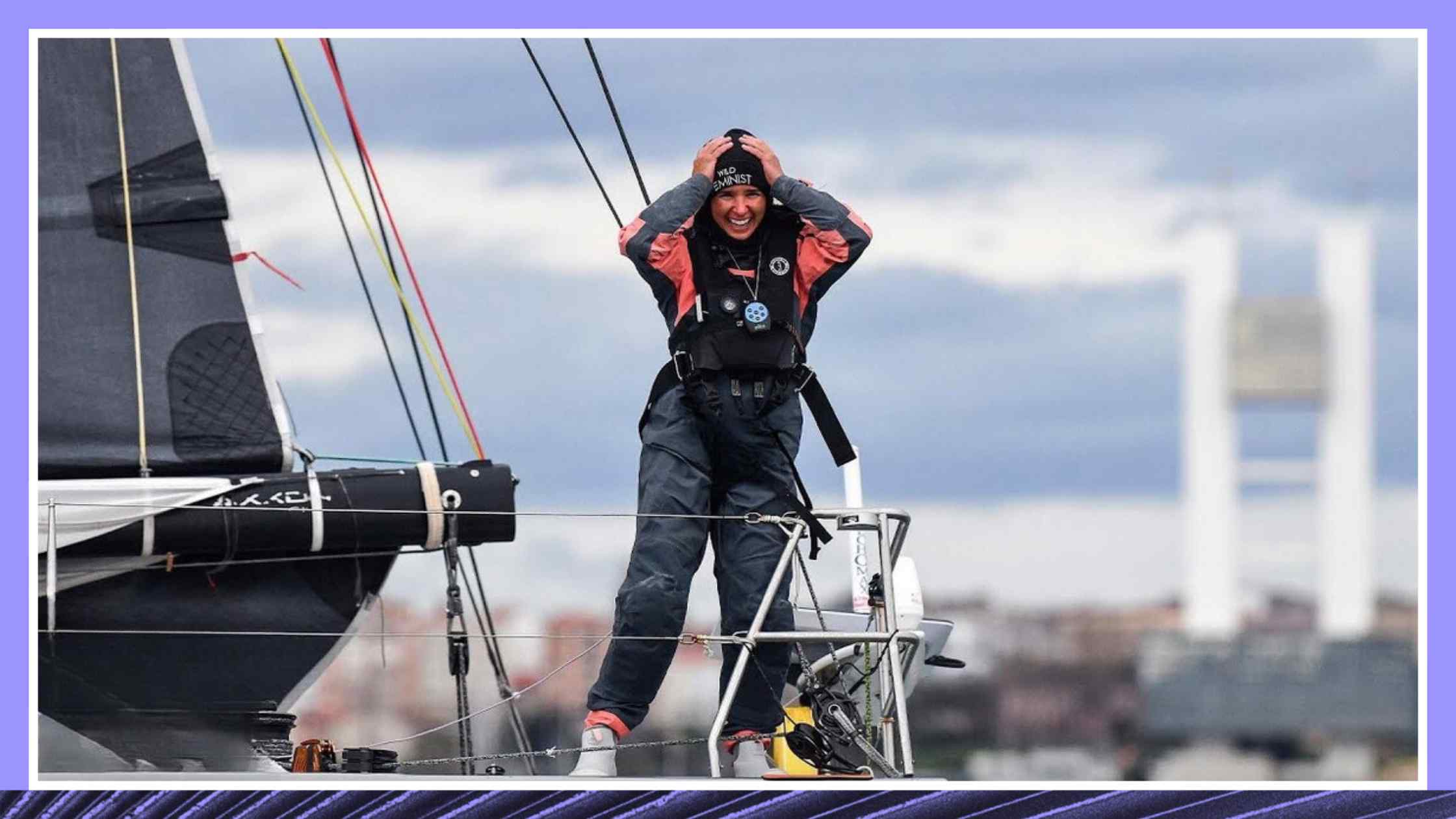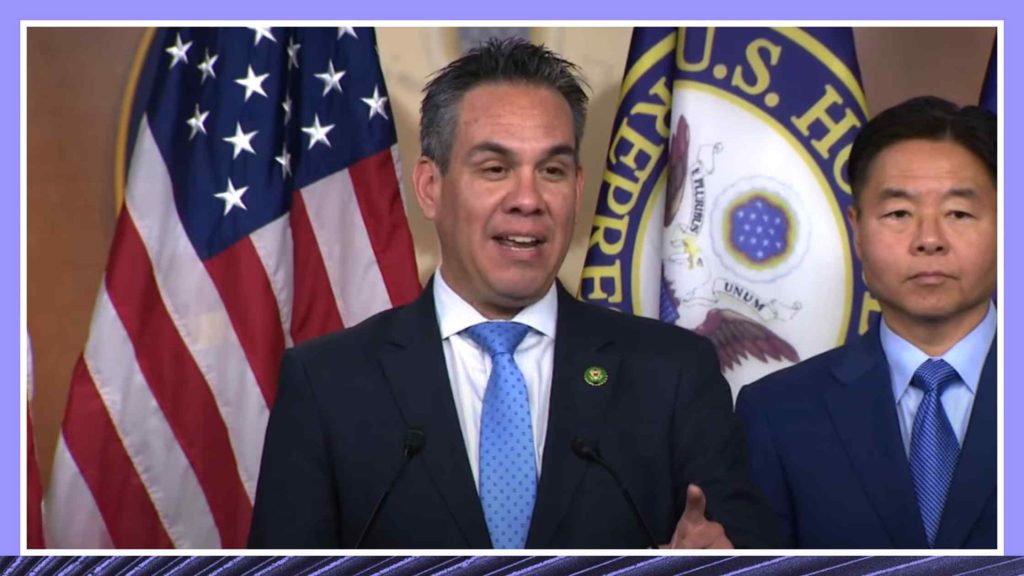Mar 12, 2024
First American Woman to Sail Nonstop Around the World

Cole Brauer became the first American woman to sail solo nonstop around the world. Fewer than 200 people have made the trek. Read the transcript here.
Speaker 1 (00:00):
Now an historic and epic achievement by an American woman that captured worldwide attention. Cole Brauer became the first American woman to sail solo nonstop around the world last week. After finishing in Spain, Brauer, who’s 29 years old, joined a group of fewer than 200 people in the world who have ever done that. She was the only woman that participated this year in what’s known as the Global Solo Challenge.
(00:24)
Brauer was able to stay in touch with her team by satellite, which also allowed her to regularly chronicle her 30,000-mile long journey on Instagram, where nearly half a million people followed her posts. Her feed detailed how she dealt with bad weather, waves, injury, dehydration, and much joy along the way. I spoke with her earlier today from Spain.
(00:45)
Sailing around the world is a daunting pursuit, even on a vessel with a full crew. How were you able to do it on your own? What was that like?
Cole Brauer (00:53):
I really wanted to do it by myself, not because I needed to prove anything, but mostly because I really like the introspective moments that you can have when it’s just you. You don’t have to try to impress anyone, it’s just you and your vessel, and I thought it was really wonderful. I’m missing it every single day.
Speaker 1 (01:18):
Your journey took you around the three great capes off of Africa, Australia and South America, and through Point Nemo, an area in the Pacific Ocean that’s so far away from any land that the nearest humans are actually often orbiting overhead on the International Space Station. What was the most difficult moment of your journey?
Cole Brauer (01:38):
I wouldn’t say that there was one big, big difficult part. There was a lot of small, difficult parts that they bring you irritation, anger, frustration. For example, when I first left, it took about two weeks to adjust. I had spent so much time with my team and so much time with my family, and then all of a sudden … There was no weaning off period, you’re just kicked off the dock and you’re going along. And I’m good at being alone, but now I was completely alone and there was no one to confide in.
(02:11)
I don’t tell very many people this, but I cried every day for the first two weeks because I just missed team dinners, being able to go out for drinks, being able to have croissants and cappuccinos. And that might’ve been the hardest part if I actually look back on it, was just the interaction with humans that I didn’t have anymore.
Speaker 1 (02:34):
And there were moments, as I understand it, where you were concerned that your vessel might actually fail. Tell me about that.
Cole Brauer (02:40):
Yeah, so there was a couple moments. That was probably the biggest one when I ever was fearful of, was these boats, these manmade objects, are just not made to handle this type of stress. Maybe 10,000 miles or even 20,000 miles, but almost 30,000 miles, and we just don’t build things in modern day to be able to withstand something like that without maintenance. And so I was doing a lot of maintenance trying to keep up with these things that were deteriorating.
Speaker 1 (03:12):
Yeah. There was a moment in your trip where you were tossed across the boat and you injured a rib, and at one point you had to self administer IV fluids to ward off dehydration. How did you find the mental fortitude to keep going?
Cole Brauer (03:27):
I don’t know if it’s mental fortitude or if it’s just you don’t have another option. When you don’t have anything else, there is no other way, there’s no way to quit. It’s not like you can just call someone and be like, “Okay, come pick me up,” because you’re so far away, there’s nobody that can come and get you.
(03:51)
Maybe that’s considered mental fortitude, but it’s kind of like you just … I have a journal that I wrote down every day what was going on, and every morning, when I hurt myself, my ribs, I just wrote down a list of, “Okay, this is what I’m going to do today.” And if I don’t get it all done, it’s okay. But at least step one, breakfast. Step two, go outside … And it’s not really mental fortitude, it’s just following the steps, that’s all.
Speaker 1 (04:23):
What did it feel like when you finally reached the end of your grueling race?
Cole Brauer (04:28):
It was like every day, because every day was a challenge, every day was an experience, every day was the best day of my life, and that is exactly what the finish was also. And so it wasn’t the biggest relief, but I did love seeing my family and my friends and that was such a wonderful moment.
(04:47)
I would say lighting the flares was such a wonderful moment too, because it’s something that sailors, when you see a sailor finish this big important race, that is the tradition, is to light flares and hold them over your head. And to actually have that moment, it’s such a dream come true.
Speaker 1 (05:08):
Sailing is still a male-dominated sport. What message do you hope all of this sends to women and girls who want to follow in your footsteps?
Cole Brauer (05:18):
I think that it’s not just about women. I think it’s about men also, is that it’s so male energy dominated. And so even men that maybe are a little bit more feminine have had to hide that side of themselves, and because they’re afraid to lose their sponsorships or not be respected in the community.
(05:40)
And I think it’s not really as being just a woman, but it’s bringing that feminine energy to balance the super male energy dominant sport. And that was what I was hoping is that if you are feminine you should be able to be who you are, even if you’re in the middle of the ocean. You shouldn’t have to be thinking if someone’s judging you when you’re trying to deal with a boat that’s breaking in half. So I think that’s super important for young women to understand, you don’t have to lose yourself to do your dream.
Speaker 1 (06:13):
Do you think you might try another voyage like this in the future?
Cole Brauer (06:16):
Oh, 100%. This race was always meant to be a stepping stone for a much bigger race coming. It happens every four years. So in 2028, I plan on doing the Vendée Globe, but it is tenfold on sponsorship money, on time, energy. And that race is much well known that it’s dominated by the French and the French sailing community. And so coming in as an American, an American woman, it’s never been done before. And so my hope is to be the first American woman to race in the Vendée Globe in 2028.
Speaker 1 (06:56):
Well, we will be watching. Cole Brauer, thanks so much for your time.
Cole Brauer (06:59):
Thank you for having me.
Transcribe Your Own Content
Try Rev and save time transcribing, captioning, and subtitling.



